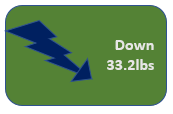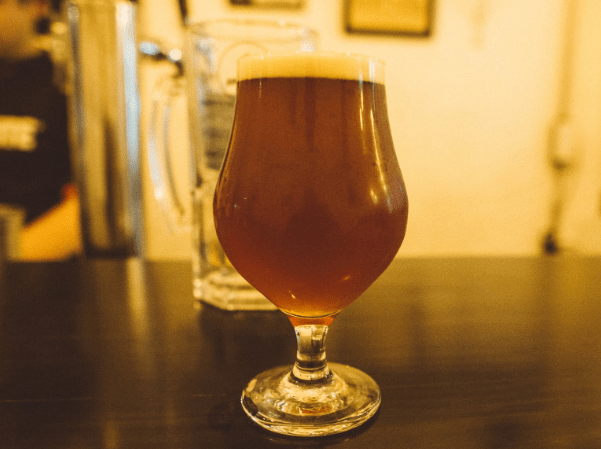Doing a GAP year from alcohol – a year without beer
There seems to be nothing more interesting to people as to what your relationship with alcohol is. That is if you don’t drink. As I sit here reflecting on my one year anniversary – I just completed a year without a drink I’ve probably had to answer the “why” question more times than I care to remember. Now the question has changed to “am I going to go another year?” . . . But before I comment in that here are some of the learnings from the year, in no particular order
Learning 1 – going a year without any alcohol brings many positives and very few negatives. My original motivation seemed to differ a little from some of the articles out on the web as how people decided to stop. I wasn’t getting blackout drunk or doing things that were embarrassing or limiting. I wasn’t concerned about becoming a dissolute degenerate. I have a job and family I love, I do the church thing and until recently I enjoyed many of Colorado’s fine craft beers.
I used to enjoy these a lot more before I realized how many calories they punched. In fairness I blissfully ignored this because I really didn’t think that in the hierarchy of socially delinquent items this merited too much attention. Boy was I wrong on that one.
Learning 2 – it only takes a surprisingly small amount of alcohol to impact, wellness and sense of well-being and not drinking is now a trend.
To that point I actually remember a fitness coach telling me it takes as little as one glass of red wine to cause deficiency in training effectiveness. Like I say I blissfully ignored this. Another aspect to that is I grew up in England and voluminous consumption of alcohol was fairly standard. My recent rates of alcohol consumption in the US would qualify me as the designated driver at home!
This quitting drinking is a trend that is hitting all the “agers” even former party stalwarts like Keith Richards are foregoing the booze. So if Keith can do it you surely can. Truth is I think you get sick and tired of being sick and tired. As you start to age past 50 you are definitely playing the back 9 and so you get a little more focused on wanting to mmake it as far round as possible. Friends start to get health issues. One of mine dodged a “widowmaker” https://www.healthline.com/health/widowmaker-heart-attack by a combination of good luck and access to a nearby helicopter. Most of us want to be able to be around for future events like grandkids or walking a daughter down the aisle or at the very least enjoying quality of life into retirement.
Learning 3 – key in on things that are worth the time and effort for you to make the commitment to get healthy.
One for me was retiring the bad jokes I had started to make around being overweight. I had lost 60 pounds – the problem was it was the same 15 pounds. In reality my weight and blood pressure were quietly creeping up and the clothes I was keeping that were at my target weight were getting pushed further and further back in the closet. I joked about getting in shape – round was a shape in my book! By whatever metric I measured by I was moving in the wrong direction. My BMI tipped (Click for info on BMI) into the obese category – another sure sign that my attempts at maintaining wellness were declining not improving.
I could blame metabolism or other aging dynamics but I have friends who were still running marathons in very respectable times and doing it while they had demanding jobs. Even friends who I ride bikes with were maintaining much better fitness levels.
Learning 4 – stop making excuses and own it. You control the hours in your day and what you consume – your wellness and well being.
I’d taken to going to sleep with an apnea mouth piece having been diagnosed with low level sleep apnea and a “lion roar” level of snoring. Of course this didn’t bother me as much as my wife, although it was creating fatigue. Apnea is a pretty big deal and is often related to excessive weight and alcohol consumption is a negative. Click for more on Sleep Apnea . This is another thing to take seriously.
Finally I was starting to engage more in my spiritual life. A cradle catholic I was spending more time engaging with understanding how the physical and spiritual life coexist and feed off each other. It was becoming increasingly clear that to deepen in relationship with God required laying down aspects of life that were inconsistent. I came up with phrase GAP year to define the core focus on three aspects that were in need of healing Gluttony – Anger – Pride. I’ll deal with the other two aspects separately but Gluttony in all it’s forms is not only inhibiting to physical well-being it is also limiting to spiritual growth as I came to realize over the year. In St Paul you find mention of the Nazarite vow ( also in Samuel and Samson). This involves eliminating alcohol as well as penetentially shaving one’s head. I passed on the second part as nature was doing a fairly good job on its own here.
Learning 5 – prepare before engaging.
Without being preachey it is important to prepare to achieve the goal. A compelling reason, clear understanding and commitment and also a plan of how you are going to transition were all key parts of moving through the goal. In the previous years I had always quit alcohol for Lent (not always successfully – I turned Lutheran a couple of times!) But this did create a general sense that I could do this.
Learning 5 get some reference materials to help in the initial 90 days.
There are tons of good articles written by people who have done this. They are really useful when you’re starting as they are motivational and can help when you go through the lows = part of giving up. My favorite is A Year Without Beer I used this as a morale booster in the initial days. I found the first 90 days the most challenging. Part of this was re-orientating time and habits. It takes a few months to change habits and overcome the tyranny of the day to day and the pressure triggers that can cause one to falter. I do believe this where the spiritual part is a big lift. If you spend any time looking at the proven steps of the AA program you see the central parts of the spiritual message. Irrespective of your views this is one of the most proven methods and merits time. AA
Learning 6 – have on hand things to occupy your mind space –
you will have more time when you eliminate alcohol and things that you were doing before may not cut it. I found a combination of exercise and writing. I found I was able to work on projects. One was a recipe site I built https://madoli.com/ so my kids could access their favorite recipes. I then started on a book that I am nearly through draft one. There is definitely a clarity you get when you eliminate the chemicals in your body. The biggest bonus of not drinking is upscaling the quality of time you have. Often we use alcohol as a anesthetic in our busy lives which is fine but not necessary. When you give up drinking it opens up a much more engaging lifestyle once you cross over.
Exercise for me was an easy shift. Every year I do a charity bike ride in the Rockies so the need to do physical conditioning in the New Year is a must. Giving up beer was a boon to training and the associated weight loss makes it easier to get the bike up the mountain passes.
Learning 7 – track your physiological and financial shift

Through 12 months the physiological changes have been significant. 14% reduction in weight, 9.5 inch reduction in waste, 9 inch reduction in leg circumference. Reduction in blood pressure from “elevated” to “normal”. Average training minutes (including walking the dogs) 422 minutes per week. BMI obese decreasing to overweight and on track to normal. Clothing sizes down two sizes.

The other big upside has been the total spend savings of $3,489. This is based on calculating the amount spent on beer when eating out (three times a week) and at-home consumption. It gets to a sizable amount fairly quickly when you add up the incremental alcohol and related costs. This is on the low side because we ended up eating out less so the impact was greater.
Learning 8 – People are fascinated when you tell them you have quit drinking for the year.
Welcome to the club. Some people will be generally interested. Some people will be a little uncomfortable about this and may try and talk you back from your “abnormal” behavior. Resist.
There is more upside in what you are doing and yes I am going another year.

